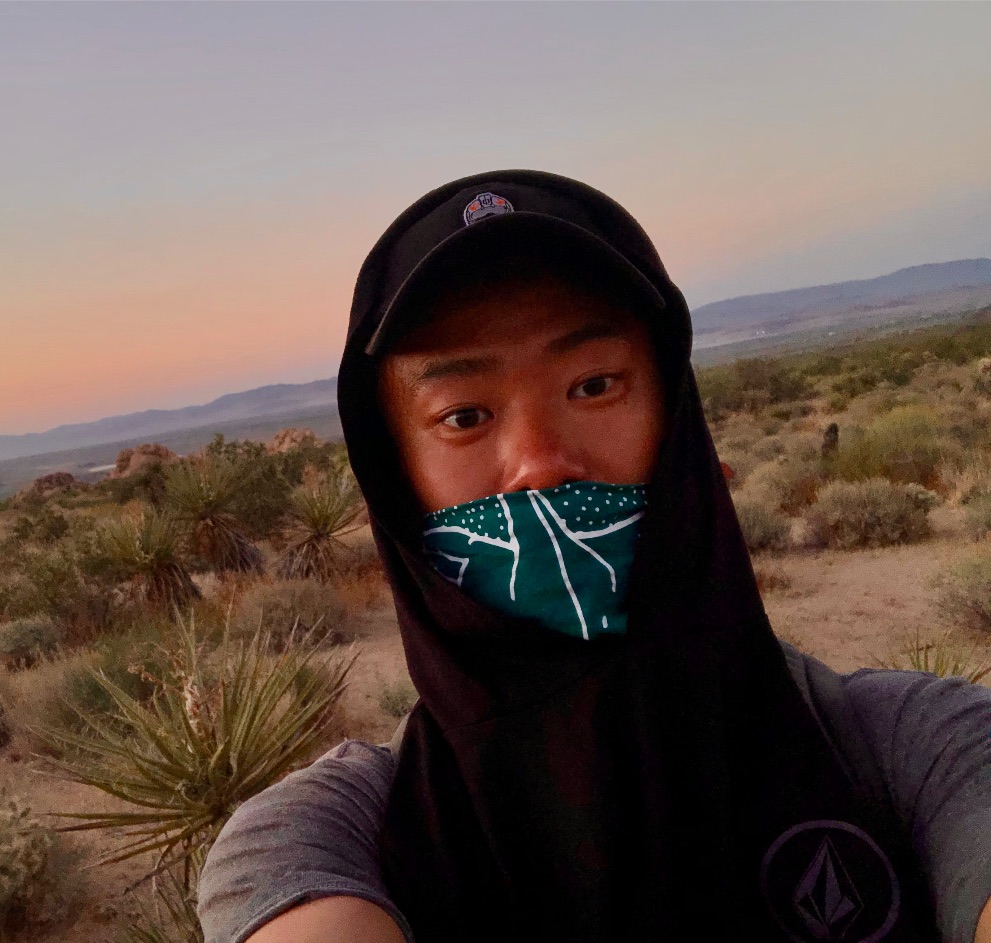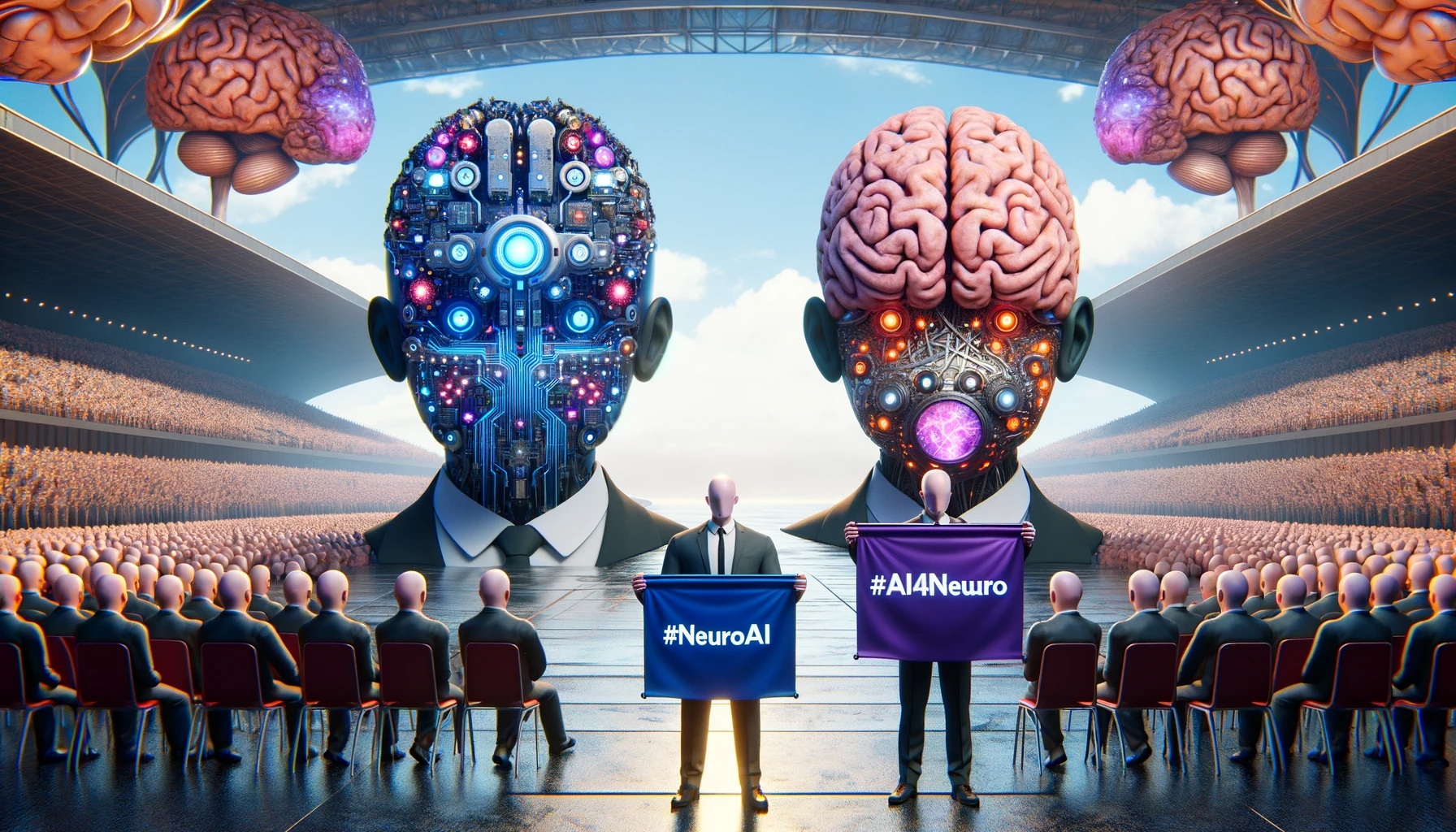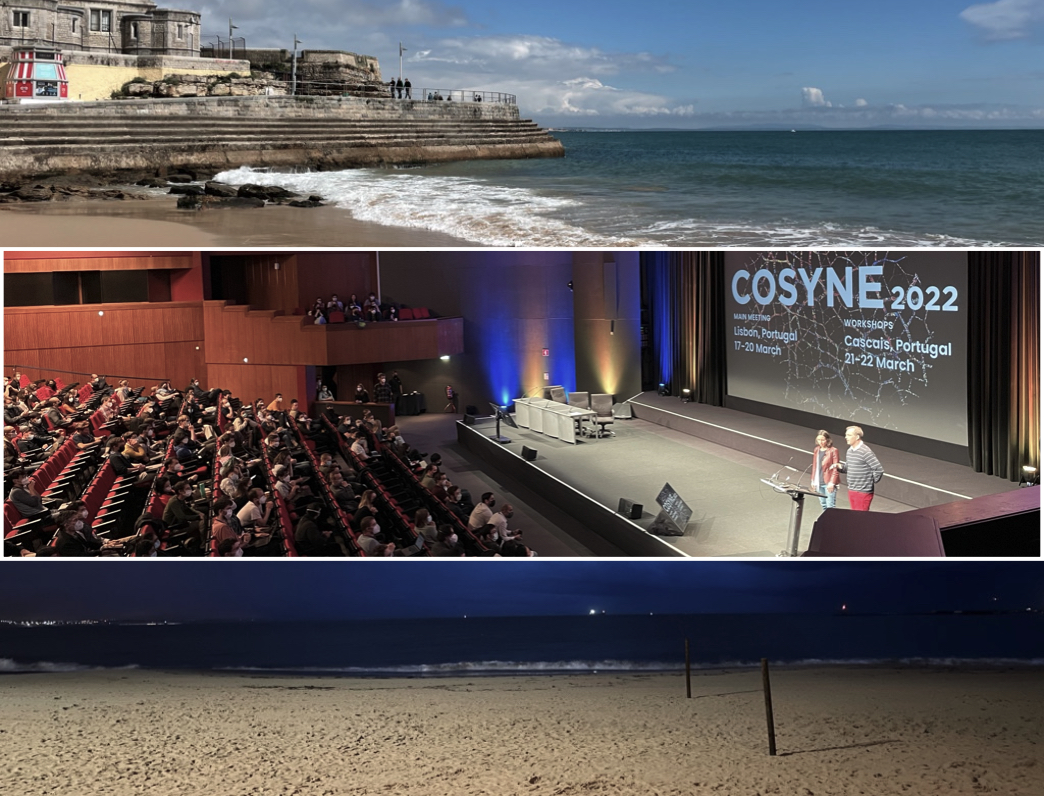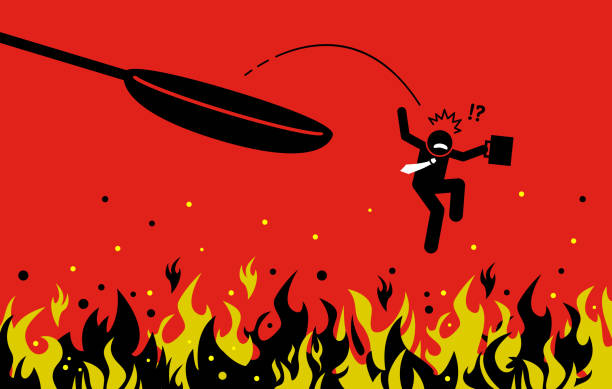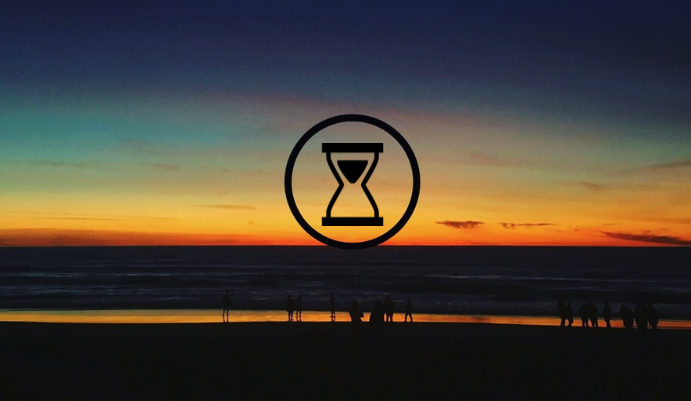It’s January of 2018. 40 months after I started my PhD. Wow. I know people say that the years feel shorter as you get older, but these days are just zipping by way too fast. I realized somewhere in October that I forgot to write one of these for my third year, and all of a sudden, we’re in 2018. So I’m late, what else is new.
This post is broken into two parts. The first part is about a recent shift in attitude I had on how to process failures and other “negative” emotions throughout the PhD, during which I also realized that getting a PhD is more like staying alive in Flappy Bird than running a marathon. Between when I started writing this post and now (~10 days), I’ve had two major rejections already (one paper, one conference submission). I’m still learning how to process these things, but what you will read below is my take on some wisdom I received through reading. The second part contains habits and lifestyle changes I’ve acquired over the last year or so, that I think contributed positively to my general well-being.
Disclaimer: none of what you’re about to read are meant to be advice, they’re more or less just entertaining chronicles of my graduate school adventure. But if you happen to find them useful or comforting, that’s all the better!
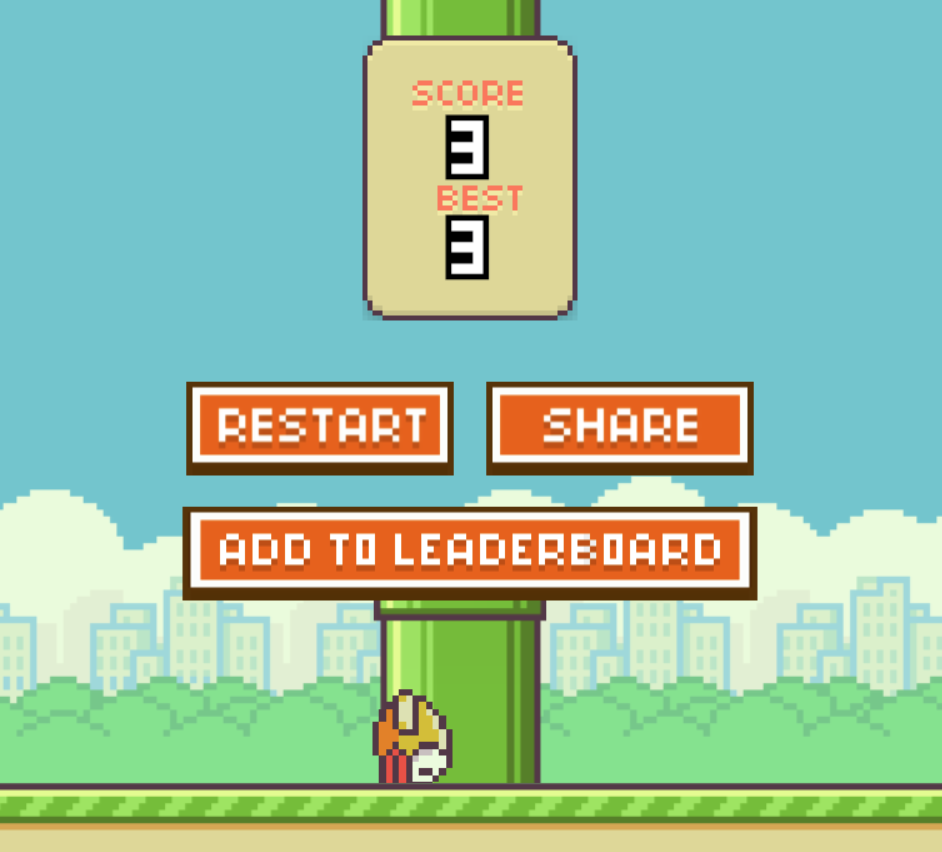
PhD - Perpetual heap of Discomfort
I thought PhD was like a marathon, and in some ways, it is - it’s grueling,
long, and most of the time you’re by yourself. But in a marathon, every step
you take contributes to getting you to the finish line. In a PhD, not so much.
It’s more like this: imagine stepping off a cliff way above the clouds, and
you’re falling through a mysterious unknown. Your trajectory has been
determined, and many, many things will come straight at you, largely outside
of your control. And you know, with every passing second, that you’re falling
(probably to your death), and it’s scary as hell. That being the case, your
attitude through the fall could be one of two things. The first is to
completely reject the reality that is the unstoppable force of gravity and
helplessly flail, feeling strong emotions at every possible opportunity. That
could be a positive or negative emotion: maybe you see a branch that might
stop or slow your fall, or maybe you hear the snap of the branch that you
thought would save you. All of these little events in their individual moments
seem disconnected and unrelated. From that perspective, their causes could
either be that you personally are doing something right/wrong, or that life is
being especially gratuitous/unfair. Through these three and half years,
sometimes I blamed life and the people around me, and often I blamed myself,
which starts the vicious cycle of unhappiness: “I seem to be falling. I see
and grasp at every little thing, but things often don’t work out. Now I’m
still falling and even more stressed out. Am I not learning quickly enough?
How is everyone else doing this so gracefully? I wish I wasn’t falling. Oh
shit, I’m still falling. Ugh… can’t I get a break or do something right?”
In hindsight, that’s not the only way to experience this perpetual fall and those emotions along the way, but I didn’t even consciously realize that that was a choice I was making, or that I even had a choice. A few months ago, I read “Man’s Search for Meaning” by Victor Frankl, and in it I found a piece of wisdom that would go a long way in helping me unlock and process my feelings of free-fall during my PhD, as well as life as a whole during these few years. In it, he says something to the effect of: in this day and age, people have a tendency to not only put themselves in situations where they are unhappy, but they then become unhappy about their unhappiness, because they have a need to be happy all the time. After chewing on this for some time, I asked myself: have I been unhappy during these years, and have I been unhappy about my unhappiness, especially those unhappiness that stemmed from factors that were a natural progression of being in graduate school in a foreign country (which also happened to be a dumpster fire with a steady stream of shitty news to look at on Twitter)? I think the answer was yes.
All of the shitty stuff - work failures and personal failures - are real, and in a way, it’s not my fault. It’s not anybody’s fault. I don’t mean that life for graduate students can’t be made better by the institution as a whole - it certainly can. Nor am I deflecting responsibility from the things that I could have done better, like starting a deliverable early to avoid stressing myself out last minute. But I think a part of me put such a heavy expectation on this graduate school experience to be positive that I rejected the possibility that my unhappinesses were a product of the situation I put myself in, but rather time and time again blamed it on how much life sucks or how badly I’m doing as a researcher. This doesn’t mean I haven’t been happy at all. Quite the opposite, actually: I regularly find joy in the work I do and the progress I’ve made, the new friends I’ve made and the experiences we’ve shared, and the beautiful city and its ocean breeze I now think of as my new home, as well as the cherished opportunities I get to see my old home and everything it embodies. But these moments of happiness are fleeting, as all moments are. Except, their endings only thrust me back to the reality of my falling, against the expectation that each happy moment was suppose to mean that I have figured life out, and that the feeling of falling should have disappeared.
The realization that many aspects of my current situation made me unhappy was powerful, and quite a relief. It’s difficult to put them into the right words, but there’s a profound difference between the mindset that things are really great overall and there are just unexpected wrinkles along the way, versus the mindset - the more accurate one I’d say - that this process as a whole is challenging and frustrating, and inevitably will make me unhappy, and that’s perfectly fine, and I shouldn’t be too hard on myself or anyone around me because of it. When I left for San Diego three and a half years ago, I kind of just hopped on a plane and left. I didn’t think about how hard I made it for myself to see my family and old friends, experience the comfort of home in Toronto, and in general the challenges of starting life in a completely new place. On top of that, never did I really think about the challenges of doing a PhD, the real and daunting challenges that many before me have faced, which, summed in one phrase, is a relentless feeling of failure and uncertainty, both real and perceived.
So what now? In Frankl’s book, one of the things he talks about, within the framework of logotherapy - or logically looking at ourselves - is that we have a choice in changing our situations. Taking responsibility for my own happiness has always been my mantra, which, I think, was why I felt inadequate or that I always have to do more to improve my own situation. But to change my situation, I have to first accurately assess my situation, and these short- term ups and downs, in a way, were largely predetermined by the choice of being in graduate school 3 years ago. Yes, specific failures and disappoints may be avoidable, but they will inevitably come in one form or another. Of course, I can also choose to drop out at any time, and that would definitely alleviate certain aspects of this feeling of falling. But if I wanted to stick it through, I’d first have to acknowledge that failures, successes, more failures and the feeling of being not good enough even after successes are all a part of this process. A lot of people in academia, to their credit, acknowledge the reality of anxiety, stress, and things like imposter syndrome, for example. Every time I read a blog post on that, I think to myself: “everyone feels it, it’s not a big deal, and it makes sense to feel it, so I shouldn’t feel it now, because understanding it means I’m above it now. Right?” Wrong. No matter how many times I’m confronted with this feeling, and no matter how many times I feel satisfied with a piece of work I did, this feeling has not gone away, and to be honest, I don’t think it ever will. So my new resolution is just to embrace this feeling, and embrace the fall. Something else that helped is the Buddhist perspective (or philosophy?) that even “negative” emotions and events can be observed, appreciated, and understood (I really like Thich Nhat Hanh’s writing about this in Being Peace, and that’s an invaluable treasure in life, just as the happy moments are.
(As I finish writing this, I am realizing that the falling process I described as getting a PhD is basically Flappy Bird rotated 90 degrees: something is always propelling you forward, and you more or less can’t control how fast you go forward, even though that’s what you’re measured on. Instead, the effort you exert feels almost orthogonal to the direction you want to move towards, but nevertheless, it’s those little actions that keep you afloat and moving. Actually, that sounds like life in general. Holy shit - life is Flappy Bird.)
That being said, I think there were a few things I did over the last year or so that definitely contributed positively to my mental and physical well- being. Most of them fit in the larger theme of finding what works for myself, so no guarantees that it will work for anyone else, but it might be worth a try:
Moved off-campus : La Jolla, nice as it is, is not very good for living, especially as a 25 year old with a diverse taste for cuisines (here comes the Soylent jokes). More importantly, living on campus literally meant that I live in the same place as I work, so I basically didn’t really live, and just worked. Turns out, living in a place where I can walk for more than 15 minutes and not having to stop because there’s nothing but highways is nice. Plus, I’m now in an area much closer to my friends, and spending quality social time (or get college-student-drunk) is definitely good for the soul! Also, having to take the bus for 30 minutes to and from work means there is a significant chunk of time away from my laptop, which brings me to…
Casual reading : sometimes I still spend the whole bus ride thinking about projects, but on most days I get a full hour of casual reading. I think I’ve read more books this year than I have in the rest of my life combined, and this sounds really stupid coming from a 26-year old, but books are great stuff! On the surface level, being immersed in a really good fictional narrative completely reenergizes my mind, and honestly on some days I look forward to that bus ride more than actually going to the office (or anything else in life) because of the book I’m reading. On a deeper level, the books themselves, both fiction and non-fiction, have had transformative effects on my life. I’d been meaning to put together a list of my personal favorites (who knows when this will happen), but top of my list so far: the Glass Bead Game, Dune, Half a Yellow Sun, All the Light We Cannot See, and I already mentioned Man’s Search for Meaning. Is this always good for productivity? No, because on some days, I would get to the office and read for another half an hour because I just can’t put it down. But do I enjoy it? You’re goddamn right I do. Shoutout to the people who have recommended or lent books to me, and my bookclub buddy (spoiler: it’s my girlfriend) who patiently reads the weird shit I want to read and picks books that I would’ve never read otherwise.
Mid-day workout : I now go to the gym before lunch for an hour and half every day, either to play basketball or to lift. I’ve even turned down free lunch events because it overlapped with my gym time. GASP I know, right? Why was this helpful? For one, I feel like I’m in the best physical shape I have been for a while, which definitely helps me feel good about myself, especially during times where everything else is crap (running theme: how to have a good day when life is shit otherwise). The other benefit is that taking that midday break to do something active really helps the blood circulate to my brain again, because if there’s anything I learned about myself during grad school, it’s that I can’t sit still for more than 3 hours and still be fully there mentally. I’ve tried various routines to overcome this, but working for 8 continuous hours a day always resulted in me dozing off for the second half of the day, no matter how many hours I’ve slept before or how many coffees I have. Midday nap doesn’t even do me as much good as exercise. I think the combined effect of adrenaline and breathing more deeply is a much more natural stimulant for the brain, and it has to come during the early afternoon for me, because going to the gym at night after a long workday (during which I’ve fallen asleep many times at my desk) is doubly ineffective.
Waking up earlier : The awkward thing about exercising midday is that, of course, I’m now working like 5 hours a day instead of 7, even though those 5 hours are all good, focused hours. To compensate for this, I usually try to wake up early (like at 6 am) to put in two extra hours, have a late breakfast, and go to the office. Because I woke up SOOO early (6 is hella early for a grad student!), I get sleepy by 9pm, which means I’m in bed at grandma hours, and the virtuous cycle continues. I’m really digging the tripartite workday now (work, breakfast, work, gym + lunch, work), and the added benefit is that even if I’m completely unproductive on campus for whatever reason (meetings, teaching, etc), I still feel good about the 2 hours I got done before my day even started. The only thing this isn’t good for is socializing on a weeknight, because it screws up the next morning.
Keeping a lab notebook : working on computational projects means I usually try many many things before something worthwhile happens, and sometimes a whole day has to be spent on things like debugging code, or learning some software package. All this means that a lot of work has to be done before I see any real results, and that feels bad. Also, I find myself always referring back to simulation or analyses I did in vague ways because I can’t remember the details, but just remembering that it was interesting/important. So after the Nth time of that happening, I decided to keep track of my daily explorations and progress in Evernote. In hindsight, this makes a lot of sense, because that’s what people in wet labs do. I guess I just felt that computational stuff happens so quickly that it’s not worth writing down. But hey, even if it doesn’t matter, seeing a full notebook definitely makes me feel good even if nothing concrete came out of it yet, and that, my friends, is the word of the day today.
